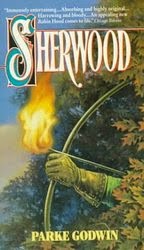Steven A. McKay's Blog, page 27
August 11, 2017
Folklore Myths & Legends of Britain

July 30, 2017
Amazon KDP “Wolf’s Head” Free giveaway results!

July 26, 2017
Wolf’s Head is completely FREE today!

July 21, 2017
Mark’s Book Review: Forest Lord Series
Steven McKay’s Forest Lord Series Review by Mark Wilkes For this review I have decided to review an entire series rather than a single book, and before we start I should probably admit that I have a soft spot for historical-based stories; those of Robin Hood being some of…

July 17, 2017
10 Things Robin Hood & his men would love/hate about modern society. A bit of fun!

June 28, 2017
Return to Ithaca – the end of an era. Review.

June 26, 2017
Interview with Steven A. McKay: Robin Hood and Beyond – Terry Pratchett, AC/DC and Bellicus the warrior-druid
Brand new interview conducted by author Jenny Kane (Jennifer Ash)
Tell us about your latest book. What excites you the most about it?
This one is about a warrior-druid in post-Roman Britain and I am loving writing it. It was nice having readymade characters like Friar Tuck and Little John who I simply needed to flesh out and bring to life but this time around I’m coming up with my own creations and its strangely liberating!
Read more at the link below:
http://jennykane.co.uk/blog/interview-with-steven-a-mckay-robin-hood-and-beyond/
[image error]
Angus on a desert island?


June 19, 2017
The Abbey of Death finds a publisher!
That’s right, The Abbey of Death will be my first book that’s not self-published. Amazon Publishing liked it enough to offer me a contract so it should be out under their banner sometime soon.
Honestly, it will mean little to my readers but to me, this is massive. Not only will I be paid an advance for the first time ever, but it shows someone really believes in my work. Now, given my sales numbers (just about to push past 100,000) and the numerous lovely reviews on Amazon and Goodreads it might seem strange that I value this so much but I still haven’t even managed to snag an agent! So for a publisher as MASSIVE as Amazon to offer a contract for my final Forest Lord tale is a dream come true.
I’ve had a great relationship with the people at Amazon since I first put out Wolf’s Head in 2013 – they even selected three of my short tales for the exclusive Kindle Singles Program – but this is the next step for me and hopefully opens more doors in future.
I don’t know if they’ll decide to use the cover my own designers came up with but, for now, this is it. My brand new series following Bellicus the warrior-druid should also be ready to go in 2017 so it’s shaping up to be my most exciting year yet as a writer. I hope you’ll all join me for the ride!


June 18, 2017
Amazon KDP now showing all-time “historical” sales in the dashboard!
Is it just me? I logged into my KDP dashboard last night and noticed a new feature – “historical” sales. This is something authors have been crying out for so it’s brilliant that Amazon have listened. It’s also great for me because I was able to count up my all-time sales from back in 2013 and realised I’d sold a thousand more books than I’d calculated previously!
Up until now I’ve been adding up my monthly sales with a calculator and keeping track that way, or, latterly, using a service like Book Tracker or Book Report, neither of which worked that well for me personally. So to be able to have this information directly on my KDP dashboard is great.
Well done Amazon!
Check it out indie authors and let us know what you think in the comments section!


June 17, 2017
A short guide to Robin Hood – pagan, Christian, nobleman, gangster?
Like King Arthur, Robin Hood seems to hold a special place in the hearts of all sorts of people. There’s something very romantic about a downtrodden normal man rising up and thumbing his nose at society’s corrupt rulers. Hundreds of years after the first stories of Robin were told, we can still identify with the concept – some things just don’t change…
No one is quite sure when Hood might have lived, with most authors following Sir Walter Scott’s lead in Ivanhoe and placing him around 1194 and the time of King Richard, although the original tales mention King Edward which would push the time-frame back a century or so depending on which Edward they meant.
There’s also some question over the religious aspects of the character – was he an extension of a pagan figure like John Barleycorn, Cernunnos or Herne the Hunter? Or was he simply a devout Christian as the early ballads suggest? The people of the middle-ages were certainly Christian, as the Crusades so violently testify, but they also held to some of the “old ways” – could a real man have taken on some of these pagan aspects and become the mythical figure we know today?

The Green Man represents nature and the seasons – more specifically the cycle of life, death and the rebirth in spring. John Barleycorn is similar, although he stands for autumn and the barley crop which would be used to make beer. It’s obvious this kind of archetype – of a symbolic figure that brings life (and beer!) to the common man while triumphing over the oppressive, killing cold of winter – fits nicely with the myth of Robin Hood. Indeed, in my own Wolf’s Head Robin brings ale, food and money to the starving people of Wakefield, foiling the ever-present medieval spectre of an early death.
Of course, the bold outlaw has been portrayed countless times in TV shows and movies – the hugely popular “Prince of Thieves” and Richard Carpenter’s wonderful fantasy-tinged “Robin of Sherwood” probably being the pick of the bunch, but the popularity of the recent BBC series and the Russell Crowe movie proves again how audiences continue to connect with the legend.
In novel form Robin hasn’t fared quite as well as the ever-popular King Arthur, who was, of course, immortalized in fantastic books by Bernard Cornwell and Marion Zimmer Bradley among others. Angus Donald has taken a refreshingly new look at the character in his successful Outlaw Chronicles, making Hood something of a medieval gangster, although the books are still set around the 13th century. David Pilling, Prue Batten and Parke Godwin are others who have explored the legend although I haven’t got around to reading them yet, simply because I don’t want to be accused of stealing ideas!

For my own novel Wolf’s Head I chose to follow the very first, original ballads by placing the action in Yorkshire, rather than Nottingham, and in the early 14th century. All the old characters are still there though, with the much-maligned sheriff doing his best to bring the “merry men” to justice. The second in the series, The Wolf and the Raven also sees the introduction/return of Sir Guy of Gisbourne…
[image error]
There are, of course, lots of other ideas and theories around Robin Hood. Was he really William Wallace? Was he a Templar knight as suggested by John Paul Davis in The Unknown Templar? Or the Earl of Huntingdon, rather than the yeoman of the early ballads? Did he really use a longbow or did that only come into use after Robin lived?
We’ll probably never know the answers to these questions, and that’s the great thing about Robin, Little John and Will Scarlet, just as it is with King Arthur and Merlin: we can allow our imaginations to fill in the blanks, knowing no one interpretation will ever be “right” or “wrong”. For me, there was a real man – or more likely men – that the Robin Hood legend was based on, over a period of decades. Hard men – probably violent criminals that weren’t very heroic at all. But their exploits – stealing from the obscenely wealthy while evading the unpopular ruling class – brought cheer to the downtrodden peasants and commoners of the medieval period. The tales grew in the telling to include elements of heroism, paganism and romance until, eventually, Hood became a symbol for justice and, perhaps most importantly, hope.
But that’s just how I see it. How do you picture the legendary wolf’s head and his band of men? In the end, that’s all that matters!
This blog post originally appeared on the English Historical Fiction Authors website on November 22, 2014.





